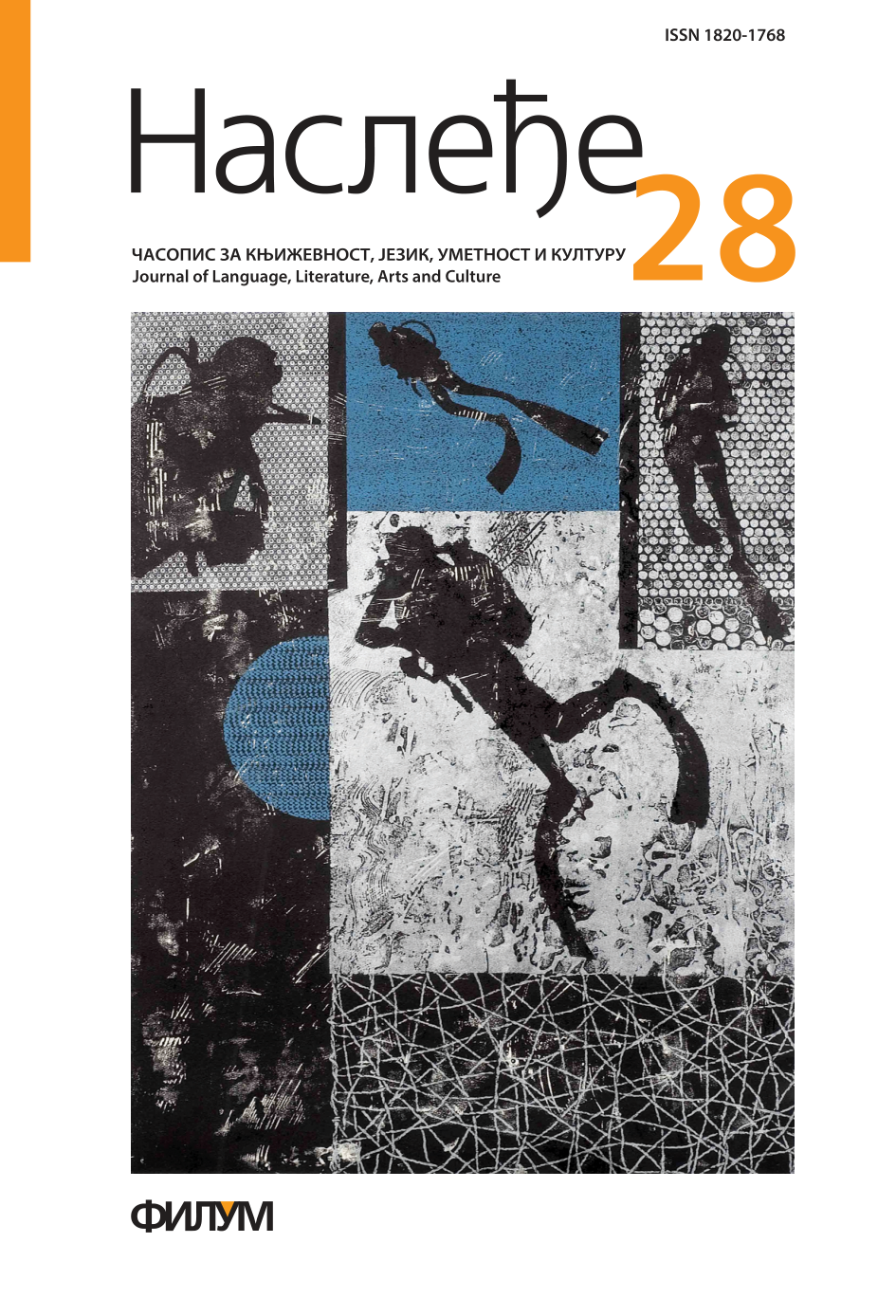THE LINGUAL MESSAGE – THROUGH THE DESCRIPTION OF A STRANGER’S PERCEPTION OF THE SERBIAN LANGUAGE IN A NARRATIVE DISCOURSE
Keywords:
perception, formal, denoting, non-grammatical construction, Serbian, English, native tongue, baviti se, raditiAbstract
Based on the theoretical positions of cognitive and text-linguistics, the author formulates the results of his analysis of writer Slobodan Selenić’s method of using lingual means to express some of his ideological attitudes in evaluating the mentality of people belonging to his nation. Material has been drawn from the letters of the Fathers and Forefathers character Elizabeth Blake, written in her husband’s native tongue ‒ Serbian, which she is still learning. The detail analyzed by the author is the Serbian verb baviti se, which many Serbian speakers use instead of the verb raditi. Through Elizabeth Blake’s words, the novel’s author evaluates those intellectuals who talk of their work as an action denoted by the verb baviti se (“on ne radi nego se bavi”) as people who are not serious workers in their professional fields. Relying on definitions supplied by Rečnik Matice srpske (1, Novi Sad, 1967), the author finds that baviti se (nečim) has many ambiguous meanings and that the meaning “raditi” (to work) is the last on the list. Relevant Serbian dictionaries first list the meanings: “biti negde”, “zadržavati se”, “nalaziti se”, “provoditi vreme”, “zanimati se”, “biti zauzet” etc. implying only the meaning “popunjavati vreme” (= “fill the time”), which does not necessarily mean “fill the time with productive work”.
References
Slobodan Selenić, „Očevi i oci“, Prosveta, Beograd, 1985.
Wlodarczyk 1997: André & Hélène Wlodarczyk, Graded Informative Content of Linguistic Messages, Proceedings of the 16th International Congress of Linguists Pergamon, Oxford, Paper No. 0431, 1997, 2-23.
Polovina 1999: Vesna Polovina, Semantika i tekstlingvistika (глава Diskurs u funkciji kognitivne analize jezičkih kategorija), Beograd, 1999.
Popović 2000: Ljudmila Popović, Epistolarni diskurs ukrajinskog i srpskog jezika, Beograd, 2000.
Stanojčić 2011: Slavko Stanojčić, Tipični primer stvaranja jezičkog identiteta (na jeziku naratora u Selenićevoj prozi), „Savremena proučavanja jezika i književnosti“, Kragujevac, 2011, (ISBN 978-86-85991-30-1), str. 359-365.
Fairclough 2003: Norman Fairclough, Analysing Discourse, London – New York, 2003.






